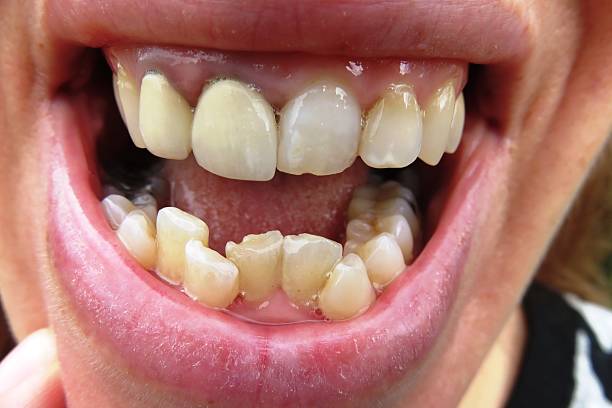What is meant by "Crooked Teeth"
Crooked teeth refer to teeth that are misaligned, overlapping or crowded. This can affect the appearance of your smile and can lead to oral health problems such as tooth decay, gum disease, and difficulty cleaning teeth properly. Crooked teeth can be treated with orthodontic methods such as braces or aligners. It is best to consult a dentist or orthodontist to determine the best treatment option for your specific case.
Impacts of crooked teeth
Crooked teeth can have several negative effects, including:
Oral health problems: Crowded or misaligned teeth can increase the risk of tooth decay and gum disease as they are harder to clean properly.
Bite problems: Crooked teeth can cause problems with biting and chewing, leading to jaw pain and headaches.
Speech difficulties: Crooked teeth can also affect speech, causing problems with pronunciation.
Low self-esteem: Crooked teeth can affect one's self-esteem and confidence, leading to social and emotional problems.
Wear and tear on other teeth: Crooked teeth can also put extra stress on other teeth, causing them to wear down or break more easily.
Decreased lifespan of teeth: When teeth are not properly aligned, they are more prone to breaking and other damage, which can reduce their lifespan.
In conclusion, it is important to seek treatment for crooked teeth in order to maintain good oral health and prevent potential health problems.
Treatment of crooked teeth
Crooked teeth can be treated with a variety of orthodontic methods, including:
Braces: Traditional metal braces are a common way to correct crooked teeth. They use brackets and wires to apply pressure to the teeth, gradually moving them into the correct position.
Clear aligners: Clear aligners, such as Invisalign, use a series of clear, removable trays to gradually shift teeth into place.
Lingual braces: Lingual braces are similar to traditional braces, but they are placed on the back of the teeth, making them virtually invisible.
Retainers: After orthodontic treatment, retainers are often used to help keep teeth in the correct position and prevent them from moving back to their original position.
Surgical orthodontics: In severe cases, surgery may be necessary to correct jaw or tooth misalignment.
It is best to consult a dentist or orthodontist to determine the best treatment option for your specific case. They can evaluate the severity of your condition and recommend the best course of action to correct it.


Post a Comment